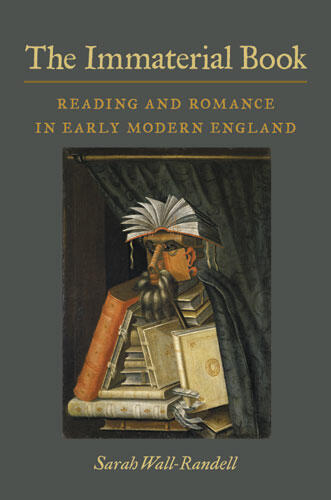The Immaterial Book
Reading and Romance in Early Modern England
An examination of representations of books and reading in 16th- and 17th-century English romance texts and the myths and metaphors these representations create, perpetuate, and reimagine
Description
In romances—Renaissance England’s version of the fantasy novel—characters often discover books that turn out to be magical or prophetic, and to offer insights into their readers’ selves. The Immaterial Book examines scenes of reading in important romance texts across genres: Spenser’s Faerie Queene, Shakespeare’s Cymbeline and The Tempest, Wroth’s Urania, and Cervantes’ Don Quixote. It offers a response to “material book studies” by calling for a new focus on imaginary or “immaterial” books and argues that early modern romance authors, rather than replicating contemporary reading practices within their texts, are reviving ancient and medieval ideas of the book as a conceptual framework, which they use to investigate urgent, new ideas about the self and the self-conscious mind.
Sarah Wall-Randell is Assistant Professor of English, Wellesley College.
Reviews
"At a time when the word material turns up insistently in book and article titles, it is unusual — and refreshing — to find a study of the ‘immaterial.' ... Real books inspire the creation of imaginary books. In pursuing this subject, Wall-Randell ably complements the scholarship of Elizabeth Eisenstein and her followers, who have documented the powerful effects of the printed word."
- Frederick Kiefer
-- Frederick Kiefer

